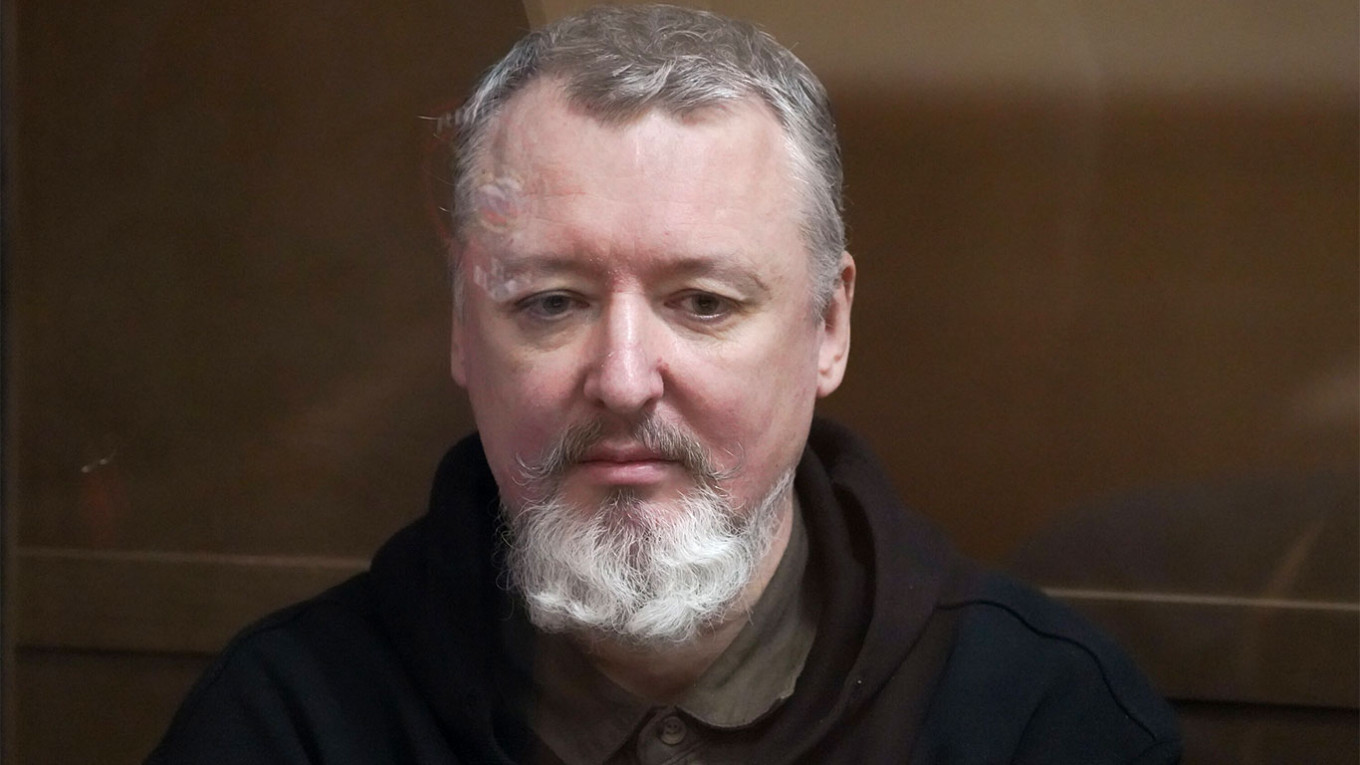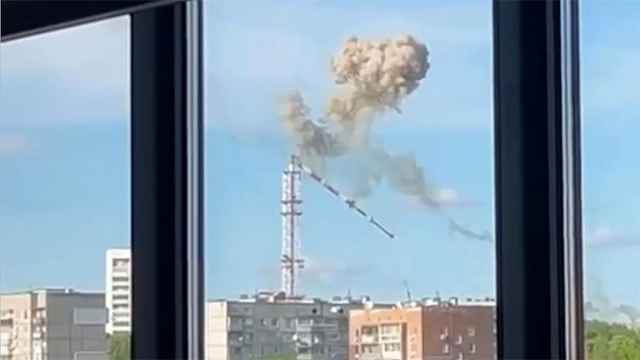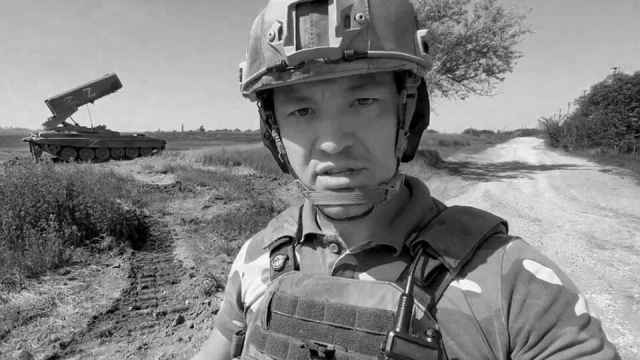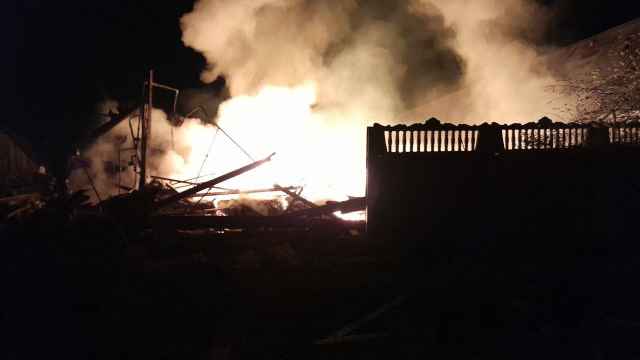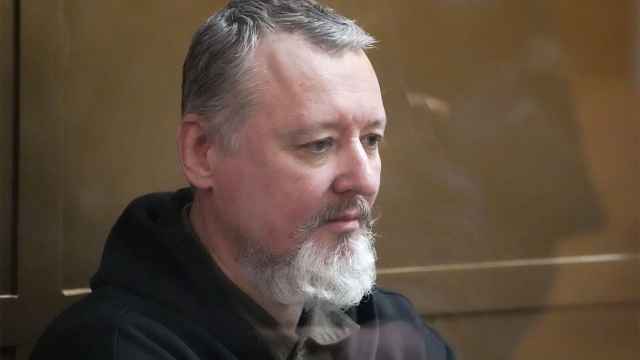The killing of Alexei Navalny four weeks before the Russian presidential election appears to portray an increasingly brazen and self-assured Kremlin. Yet its treatment of ultra-nationalist Igor Strelkov tells a different story, that the Kremlin is afraid of ultra-nationalism as a political force.
On Jan. 25, 2024, Ukraine and Russia became locked in a war of words following the downing of a Russian military aircraft carrying 74 people, 64 of whom were purportedly Ukrainian POWs, in Russia’s Belgorod region the day before.
Meanwhile, ultra-nationalist Igor Girkin (known to most by his pseudonym Strelkov) chuckled as his four-year sentence for inciting extremism was read out in a Moscow courtroom. Strelkov was arrested in July 2023, after he disparaged President Vladimir Putin on his Telegram channel, describing him as a “nonentity” and calling for him to “transfer power to someone truly capable and responsible”.
Strelkov played an integral role in the annexation of Crimea and commanding pro-Russian separatist militia in the Donbas in 2014. Outside Russia, he is best known for his presumed culpability in the downing of passenger flight MH17 over the occupied Donetsk region, killing 298 civilians. But Strelkov’s recent treatment demonstrates that even after the death of Yevgeny Prigozhin, the Kremlin still fears the sting of ultra-nationalists as posing a potential political challenge to the regime two years into its war in Ukraine.
First, there is the relative lenience of Strelkov’s sentence. The conveniently broad extremism law, which dates back to 2002 and in practice is used against almost all of Putin’s political opponents, can engender a small fine or a hefty prison sentence. Putin’s most vociferous critic, Alexei Navalny, was sentenced to 19 years under this legislation.
Members of marginalized groups – like LGBTQ+ people – that do not necessarily present a direct threat to the regime’s survival, but the Kremlin still sees to be hostile, are not immune from extremism charges. Given that Strelkov is a fanatic who openly called for the demise of the head of state, four years is a remarkably soft response.
Strelkov still wields considerable clout among Russia’s ultra-patriot war bloggers. These “Z-bloggers”, who are usually embedded in Russian units in Ukraine, have established themselves as a prominent group since Russia’s full-scale invasion, with many of the most recognizable figures among them invited to the Kremlin in June 2023. They are useful for the Kremlin in projecting pro-war messaging and encouraging Russians to enlist. But many are also sympathetic to Strelkov’s critical appraisal of the Kremlin’s prosecution of its war in Ukraine, which is regarded as being carried out with too soft a touch.
Second, Strelkov’s sentencing was announced on the same day as that of Darya Trepova, found guilty of the assassination of bank robber turned prominent Z-blogger, Vladlen Tatarsky ( whose real name is Maxim Fomin) at a café in St Petersburg on 2 April 2023.
But unlike Strelkov’s, Trepova’s sentence was not notable for its leniency. Trepova, who claims she was duped into handing the blogger a bomb disguised as a statue, was sentenced to 27 years in jail. While the case is mired in much uncertainty, the fact that she was handed such a harsh sentence and that it was announced on the same day as Strelkov’s was clearly designed to drown out the news of Strelkov’s sentencing and appease the Z-bloggers by signaling that their security is of paramount importance to the regime.
On the day of Strelkov’s sentencing, another prominent Z-blogger, Boris Rozhin criticized Strelkov’s sentencing, arguing that it was wrong that someone who played such a critical role in the 2014 seizure of the Donbas was in prison “instead of being on the front lines.”
That Rozhin can publically voice this cautious yet unambiguous criticism of the Kremlin’s treatment of Strelkov speaks to the sense of agency that Z-bloggers have. However, just a few days after Avdiivka fell to Russian forces on 17 Feb. 2024, well-established Z-blogger Andrey “Murz” Morozov was reported to have died by suicide. Morozov, a close associate of Strelkov, said that the Russian Armed Forces had lost 16,000 troops in its push for Avdiivka. The revelation was met with fierce criticism from Kremlin-aligned media actors such as Vladimir Solovyov.
Not long after, Morozov, a close associate of Strelkov, published a series of posts preannouncing his suicide, alongside claims he had been pressured to delete the offending post. Morozov’s fate demonstrates the hazy parameters in which Z-bloggers operate.
Though some contained criticism of the regime’s execution of its war in Ukraine is clearly permitted, such blatant estimations of the price of the war are not. Nor as Strelkov’s case signifies, is a direct critique of the Russian president.
The treatment of Strelkov seems to suggest that he and his supporters could serve an important function for a Kremlin at war, which may or may not prove useful at a later stage. But at least for now, the ideological threat posed by his particular form of ultra-nationalism poses too much of a risk. The regime fears nothing more than a challenge from zealots who are adept at mobilizing their broad base of followers.
A Message from The Moscow Times:
Dear readers,
We are facing unprecedented challenges. Russia's Prosecutor General's Office has designated The Moscow Times as an "undesirable" organization, criminalizing our work and putting our staff at risk of prosecution. This follows our earlier unjust labeling as a "foreign agent."
These actions are direct attempts to silence independent journalism in Russia. The authorities claim our work "discredits the decisions of the Russian leadership." We see things differently: we strive to provide accurate, unbiased reporting on Russia.
We, the journalists of The Moscow Times, refuse to be silenced. But to continue our work, we need your help.
Your support, no matter how small, makes a world of difference. If you can, please support us monthly starting from just $2. It's quick to set up, and every contribution makes a significant impact.
By supporting The Moscow Times, you're defending open, independent journalism in the face of repression. Thank you for standing with us.
Remind me later.



